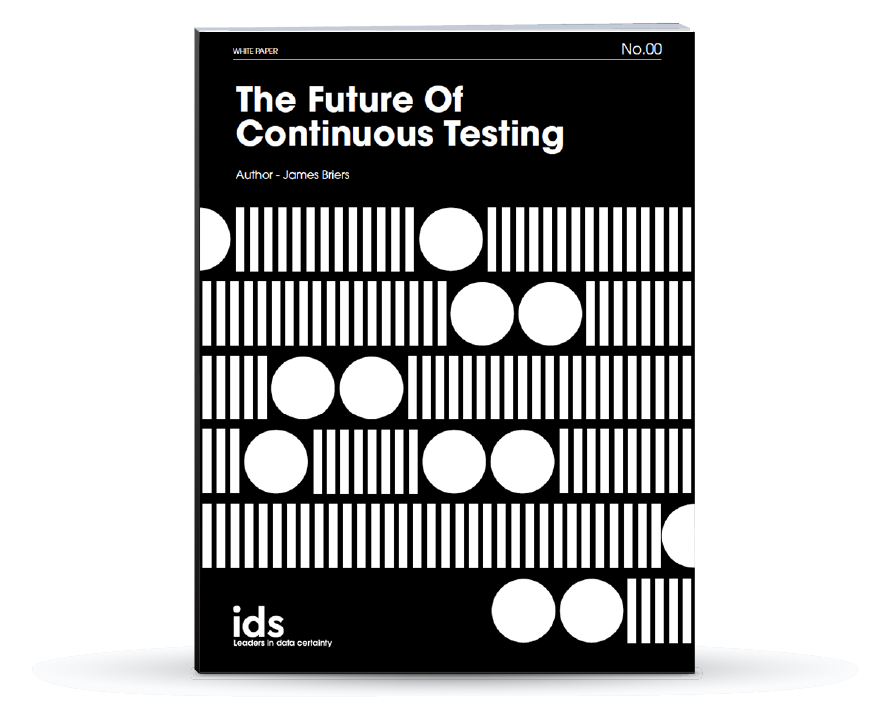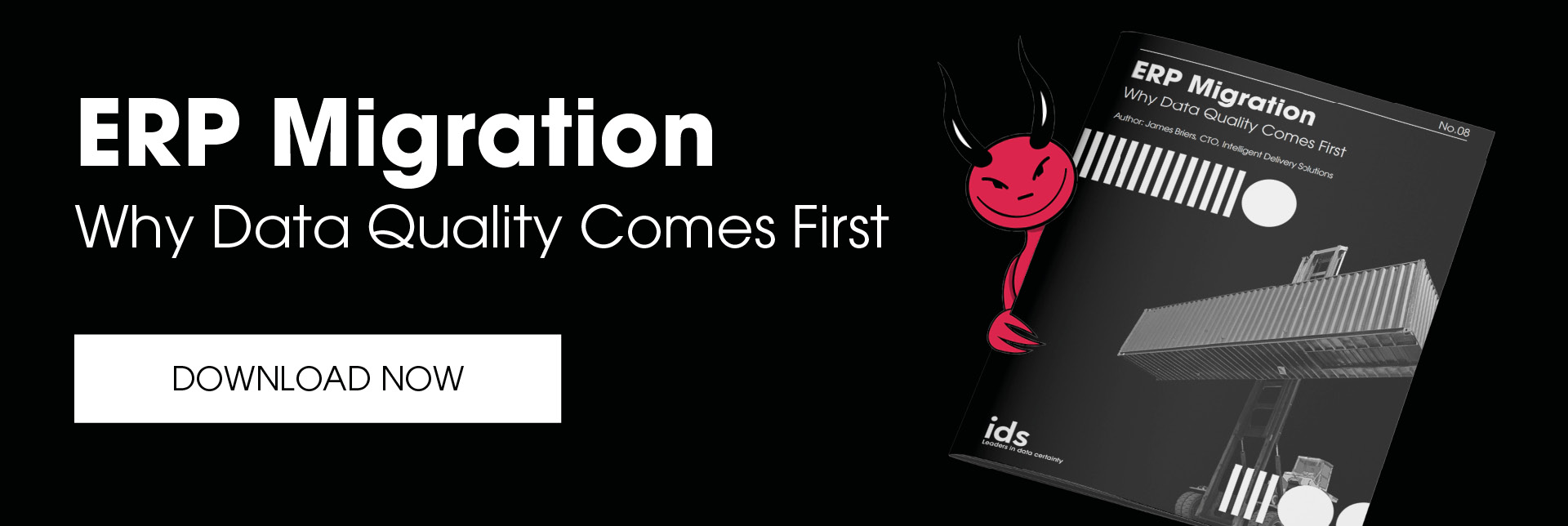The Importance of Data Integrity for Your Organization
.jpg)
What is Data Integrity?
Data integrity is a data quality management process of ensuring that data is accurate and can be trusted. Data with integrity is dependable, trustworthy, and credible. It's more than just your organization's customer data; it includes all data in your organization, and the costs associated with managing and maintaining data, as well as your ability to make smart business decisions.
Data integrity ensures that there are no errors in the data or corrects them as soon as possible when they are discovered. The problem, however, is that the rate of change of data, the multiplicity of data sources, and the requirement for compliance and data truth 100% of the time, makes this incredibly difficult for organizations to achieve.
It's crucial for organizations to ensure that their data is accurate and up to date, as this will severely impact their future success. The potential negative impacts of poor data integrity are many and varied but can include incomplete order data and inaccurate accounting practices; poorly targeted and ineffective marketing; lack of line-of-sight from business practices to senior management; low customer satisfaction and customer service levels; and vulnerability to data breaches.
Understanding the fundamentals of data integrity and how it works is the first step in keeping data safe. In this post, we’ll explore what data integrity is, why it’s essential, and what you can do to keep your data healthy.
Data Integrity Errors: A Real-Life Example
A pharmaceutical company is keen to be first to market with a new antiviral to counter the latest Coronavirus variant. They bring it to market with claims about the safety and effectiveness of their new drug. But when the MHRA inspects the offshore manufacturing capabilities, work is halted immediately; important quality control data is missing.
Sadly, this real-life example of compromised data integrity isn’t uncommon. Problems with the accuracy of data and consistency of data exist across all industries and can cause everything from minor hassles to significant business problems.
In this era of ever-exploding quantities of data, where more pieces of information are processed and stored than ever, data quality become a pressing issue — and implementing measures that preserve the integrity of the data that’s collected is increasingly important.
What are the Common Violations of Data Integrity?
When you use references or do database queries, errors are typically very common.
The two most common violations of data integrity, listed below, can dramatically affect your ability to interrogate the data:
1. Referential Integrity Violation: Referential integrity is a property of data that ensures that every reference to another table, column, or row within the same database is valid.
2. Database Error: Database errors happen when there is a problem accessing the data in a database. This can be due to hardware issues or software issues.
Referential Integrity Error:
How a Single Mistake Can Cause Multiple Errors
Referential Integrity errors are one of the most common errors in SQL Server. This is because they are caused by a single mistake.
Let's look at an example:
A business development team asks their database manager to take sales data from the CRM system and then update it in the database using an SQL query, so that they have accurate data for an upcoming reporting deadline. It’s the end of a long week, and the data manager mistakenly creates an UPDATE statement that updates the wrong column or table.
Suppose, instead of updating ‘sales_data’, they update ‘customer_data’, which has nothing to do with their work. In this case, a referential integrity error will happen and will cause problems in other tables as well because it will update columns that have no relation with what it should be updating.
Detecting Referential Integrity Violations in SQL
Referential integrity errors in SQL queries are often difficult to detect. These errors can result in produce incorrect data sets and a skewed view of the information. Fortunately, there are a few ways to avoid this issue and make your queries more accurate.
Referential integrity is a key SQL keyword that ensures data consistency.
The rules of referential integrity state that if a parent table contains a column, it must also contain the column's child table in the same order. If there is no corresponding entity in the child table, then there can be no relationship between the tables and a referential integrity error will occur.
The referential integrity rule is a database rule that ensures that the data in one table always matches the data in another table. Referential integrity enforces the data dependencies across multiple tables.
It does this by ensuring that a value in one table matches with a value in another table. If the values don't match, it can cause errors in your database and corrupt your data.
Data Integrity Risks
Here are some examples of factors that may negatively impact the data in your database:
- Human error: When people input information incorrectly, destroy or delete key information, don’t follow security protocols, or make mistakes in general, this will jeopardize the integrity of your data.
- Transfer errors: When data can't successfully transfer from one table to another in a relational database, a transfer error has occurred. Transfer errors happen when data is present in the destination table but not present in the source table.
- Bugs and viruses: Spyware, malware and viruses can invade a personal computer and control what information is accessed. This can lead to data loss or catastrophic error.
- Compromised hardware: Sudden computer or server crashes can indicate that your hardware is compromised. If a company's hardware has become compromised then it may lead to major data loss, making it hard to use.
Risks to data integrity can easily be minimized by doing the following:
- Limiting access to data and changing permissions to restrict changes to information by unauthorized parties
- Validating data using a tool such as iData, to make sure it’s correct both when it’s gathered and when it’s used
- Backing up data
- Using logs to keep track of when data is added, modified, or deleted
- Conducting regular internal audits
- Error detection software.
Data Integrity is Vital to Data Security and Avoidance of Data Breaches
The data landscape today is more complex than ever.
According to the Software Engineering Institute, the average company has only five years of data protection before they will have their first data breach. This is attributable to numerous factors, including the increase in cyber-terrorism leading to data breaches, stricter regulations around data protection, and the need for faster business operations.
Gartner conducted a survey among 3,000 IT executives and found that data breach is the leading cause of business interruptions.
Data integrity is the measure of how accurately information is preserved and presented over time. A data breach is an event in which sensitive, protected or confidential data is targeted by criminals and removed or copied without authorization.
If a company's data integrity is weak, it can lead to a data breach, an increasing risk in both regulated and unregulated industries due to the unprecedented rate of growth of data.
Conclusion: Why Data Integrity Matters
Whether in relation to decision-making, customer service, or protecting the organization from data breaches, it’s clear that maintaining both data integrity and referential integrity, is vital in 2022.
Many industries are being reshuffled in the aftermath of the pandemic, from the explosion of eCommerce, to the disruption in supply changes, environmental shifts, and changes in consumer demand.
In this context, not only is the requirement to act fast, based on accurate and timely data, more pressing than ever before, but data breaches are occurring at a rapid rate - and the financial impact to companies is only increasing.
In this context, data integrity must be made a priority for any organization that is trying to maintain its competitive edge in the marketplace.
IDS offers a free exploratory consultation to help understand the importance and state of data integrity for your organisation to remain competitive.
Contact us for more information on how we can help make sure that your organization’s data is safe and error-free.

Learn How Continuous Testing can Improve Your Business
IDS' Chief Technical Officer, James Briers, sheds light on the solutions to approaching complex data testing projects with mechanical efficiency.


.jpg?width=1200&name=IDS_Website-Image27_(1200x628).jpg)

